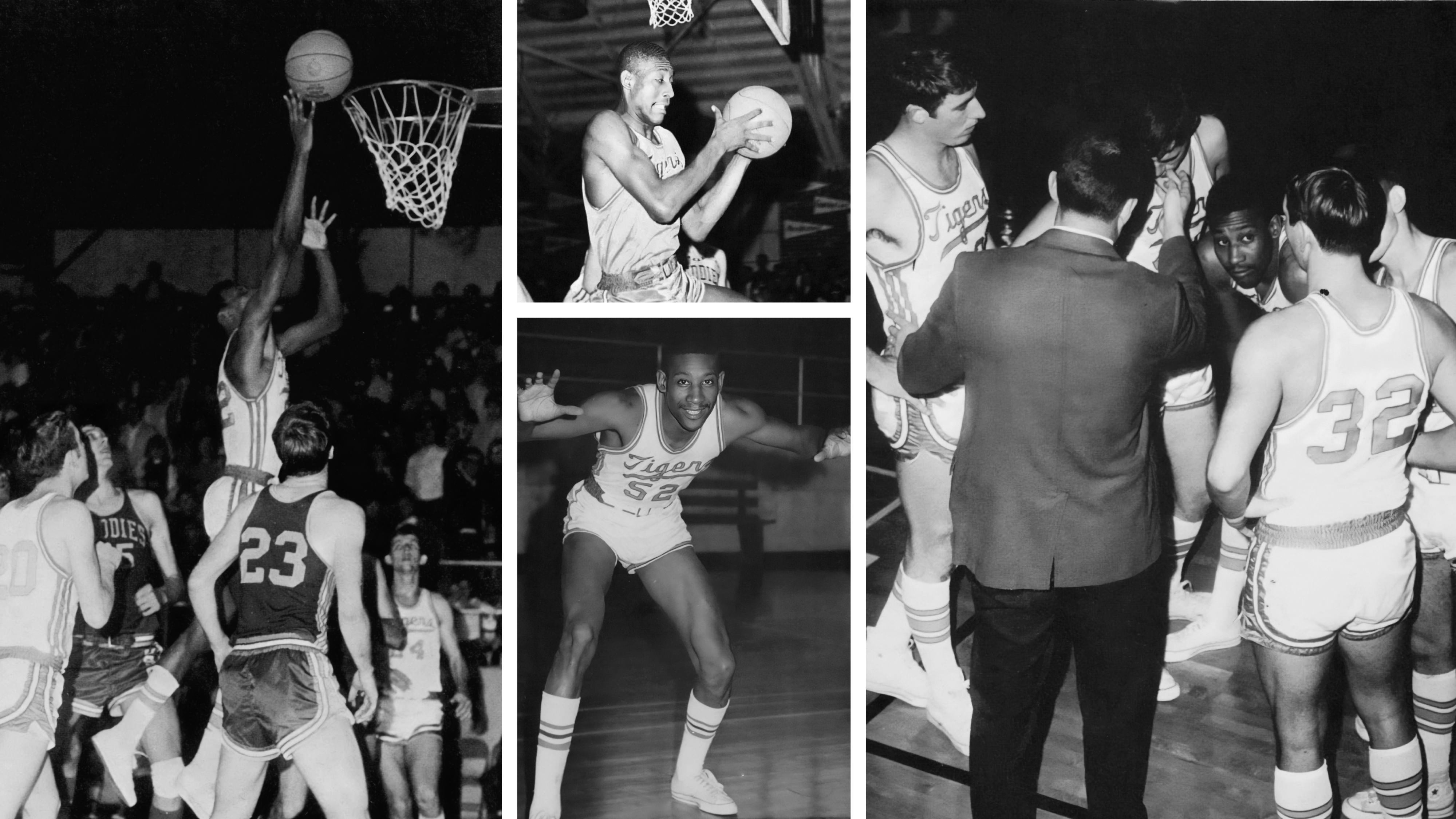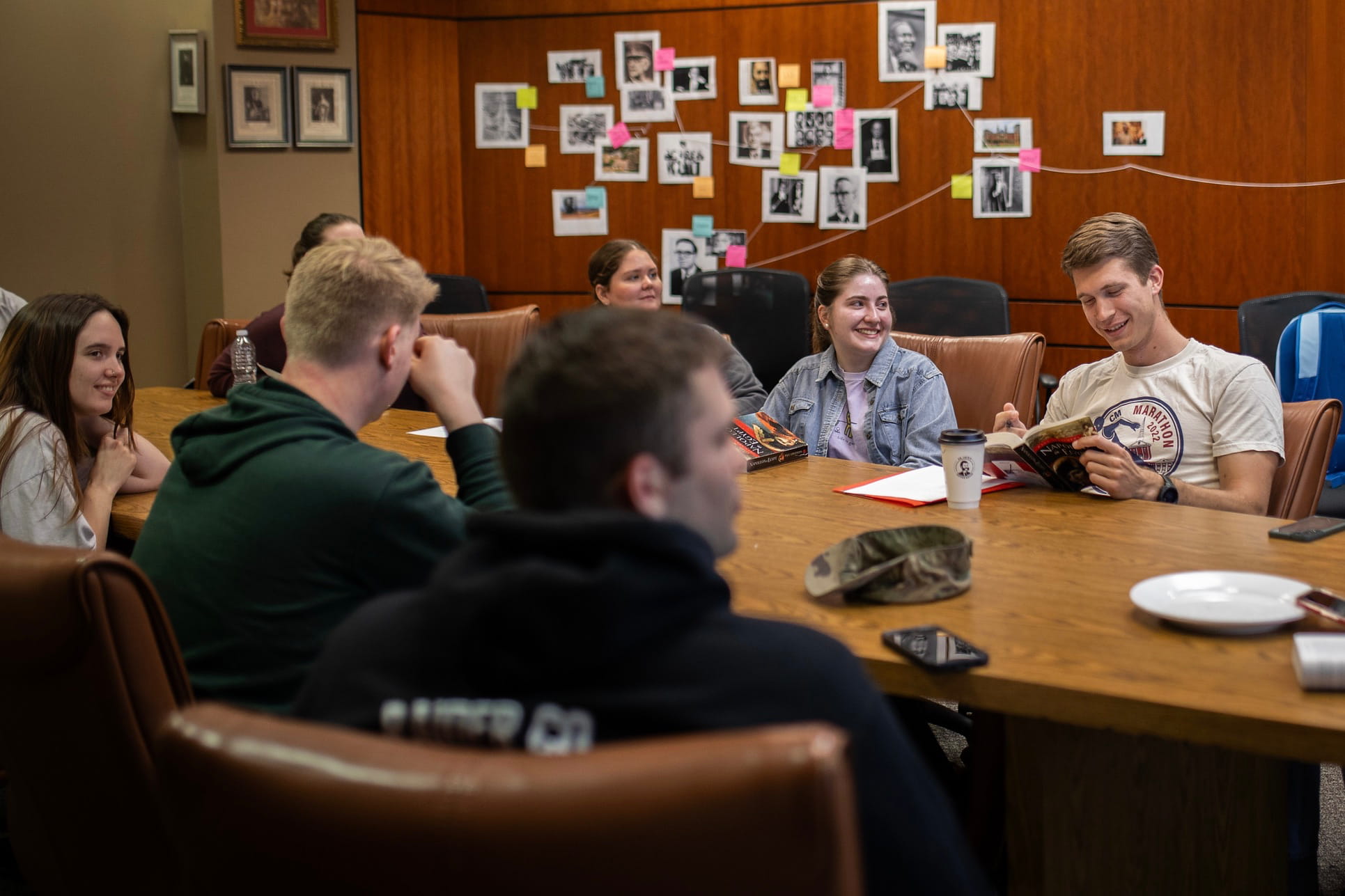New Testament scholar affirms reliability of Scripture at Birkett Williams Lecture
September 18, 2013 - Jessica Stewart
Ouachita Baptist University’s Pruet School of Christian Studies hosted Dr. Daniel
B. Wallace Thursday, Sept. 12, as part of the university’s Birkett Williams Lecture
Series. Wallace’s lecture titled “How Much Did the Scribes Corrupt the New Testament?”
highlighted the reliability of the New Testament based on textual criticism of manuscripts.
Dr. Wallace is a professor of New Testament studies at Dallas Theological Seminary
where he has taught for more than 25 years. He also serves as executive director of
the Center for the Study of New Testament Manuscripts. Wallace is an internationally
known Greek New Testament scholar, a consultant for many Bible translations and the
author of several books.
Describing Wallace as “a friend, a gentleman and an outstanding scholar,” Dr. Danny
Hays, dean of the Pruet School, said Wallace “is one of the country’s top experts
on New Testament manuscripts.” He added that Wallace “has been one of the strong voices
for historical Christianity, establishing that the gospels are reliable.”
In his lecture, Wallace affirmed his belief in the reliability of the New Testament
based on his years of experience analyzing ancient manuscripts and studying them using
textual criticism.
“Textual criticism is the science that tries to determine the exact wording of an
ancient document that no longer exists, but it has copies,” Wallace explained. “It
gets down to a very, very precise level, right down to the very letters.”
Noting that more than 5,800 Greek manuscripts have been discovered dating to as early
as the second century, Wallace said, “As time goes by, we are getting closer and closer
to the original text.” The older the manuscripts are, the more reliability they have,
he added.
Compared to other ancient writings, the manuscripts of the New Testament are much
more numerous and are dated much closer to their original completion dates, he explained.
“One hundred and twenty five years after the New Testament was completed, we had over
43 percent of the verses already found. The average amount of text from classical
authors after 125 years was zero percent,” Wallace said. Most classical texts were
not discovered for over half a millennium after their completion, giving the New Testament
manuscripts much greater historical credibility by comparison.
Wallace then addressed the large number of variations among manuscripts and the nature
of the variations. The number of variants in the manuscripts is primarily a result
of the large number of manuscripts that have been found written by various scribes.
Citing an example of a sentence in Greek, the language of the manuscripts, Wallace
noted how a single sentence can be written in Greek hundreds and sometimes thousands
of different ways using different word orders and still maintain the same message
and meaning.
The nature of these variants is also important, Wallace added. “Ninety-nine percent
of the variants make virtually no difference at all,” he emphasized. They are spelling
variants that do not alter the meaning of the text.
“In all essential respects, we have the Word of God in our hands today,” Wallace concluded.
“No essential Christian belief is jeopardized by any viable variant.”
Ouachita’s Birkett Williams Lecture Series was established in 1977 through a gift
from the late Birkett L. Williams, a 1910 Ouachita graduate. His generous endowment
established the lectures as an opportunity to extend the concepts of a liberal arts
education beyond the classroom by bringing outstanding scholars and public figures
to Ouachita’s campus.
To view a recording of Wallace’s lecture, visit https://vimeo.com/74471900.
By Jessica Stewart
You Also Might Like
Ouachita reports Spring '26 enrollment, led by 50% increase in graduate students
February 11, 2026Recent
Ouachita reports Spring '26 enrollment, led by 50% increase in graduate students
February 11, 2026



